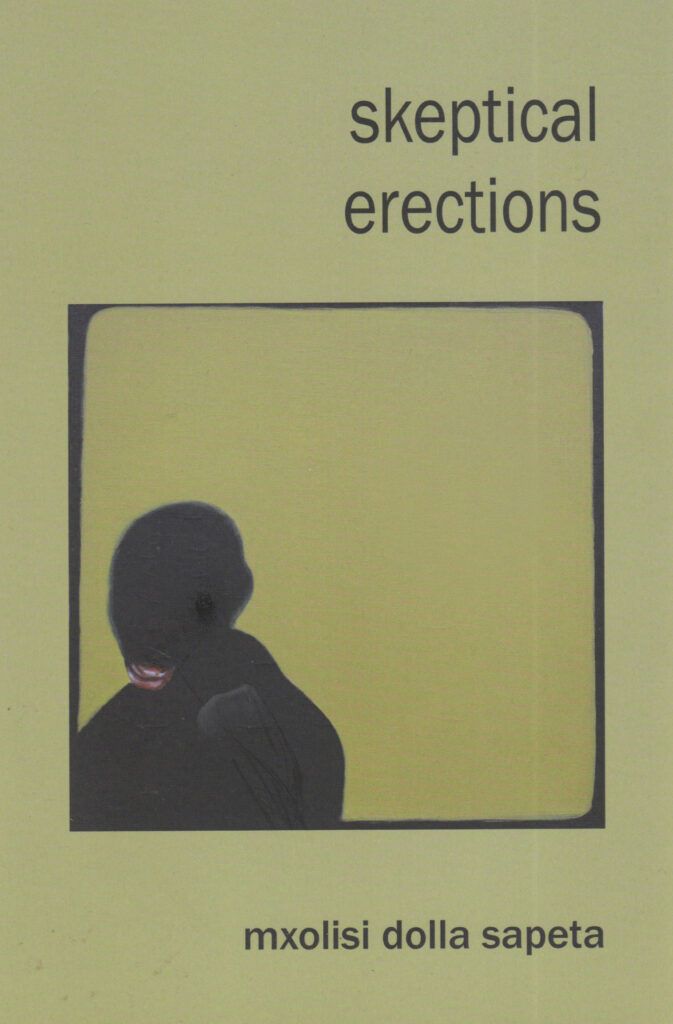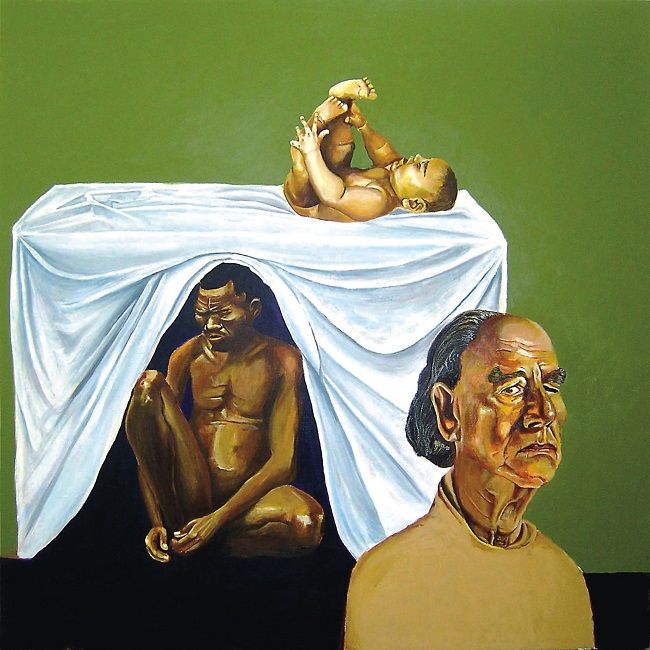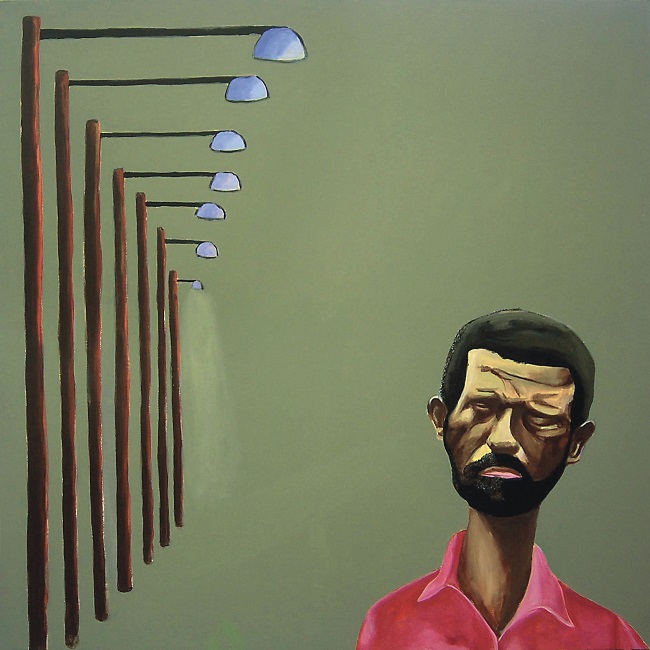MKHULU MAPHIKISA
Short but not sweet: Skeptical Erections and the Black Condition

I enjoy reading poetry. I like the idea of using few words to say more. For me a poet must keep his narrative linked. Skeptical Erections does just that, each poem can be linked to the rest of the book. It took me a week to read and re-read this book. Sapeta is my kind of poet. He is conscious of the black condition although he looks at one story/scene at a time.
Skeptical Erections has an aura of melancholy. But don’t be alarmed, that aura is because the poet deals with the ‘black condition.’ Mxolisi Dolla Sapeta’s poetry looks at life as a whole, however you can tell by the images in his poetry that the condition he speaks of is familiar. His images show you that the condition he speaks of is black and often strangling.
“whiteness is always hiding
behind the dark, behind death
do you want death?
do you want the shadow or do you want blacks”
These are his opening lines to the poem master. The most painful poem in this collection. The three page poem is a story of a plantation told by a child. It’s a story of pain and anguish. A triangle of rape in the hands of the master in a plantation.

I am not forcing the term ‘Black condition’ on the poet. His poem on page 27, is simply titled Condition 1. In it you realize that this condition the poet explores can only be black.
“child is with child on her back
scraping and shuffling through government grants’ . (Line 1 and 2.)
“random gunshots and the alarming growth of shebeens,
mini-malls, churches and beauty salon containers’. (Line 6 and 7)
By now we can all agree that this condition is woven throughout Skeptical Erections.
On page 28 Sapeta’s five line poem fatherland ends with the line ‘and the looting continues’. Thus not only are his words directed at the ‘condition’, he is also aware of who makes dire the condition.

Poetry is a difficult art to digest in large doses. It needs time to sink in and connect the poet’s dots to find meaning. When I ran through Mxolisi Dolla Sapeta’s Skeptical Erections I was aware that I will need to read each poem three times or more to get to its intended point. My prejudice being that a complete artist always provides for the reader to have a perspective.
Sapeta sounds like a complete artist. One who digests the black condition frame by frame like an editor in a cutting room. His awareness spills over in his poetry and you are seeing images of the black condition from his perspective.
I apologize, for Sapeta is not to be confined that easily. He goes deep. On page 24 he introduces us to a sharp five liner that almost becomes a ‘tradition’ in Skeptical Erections. This one titled on women is a mystical adoration of women that ends with a request to women to “make your own tribe pith of genius’.

I could not think of any word but relevance when I read on women. It made me think of poets like Haki Madhubuti (Don L. Lee). We are a generation of men that violates and murders women. When I read this poem I thought of the condition South African women find themselves living in.
The title of the collection appears in page 59 in a poem titled all my killers.
“I died with a skeptical erection
a grin and a vulgar despair
inside a spontaneous shallow grave” (Line 1-3)
This collection is not for easy reading, it provokes thought. Mxolisi Dolla Sapeta’s poetry packs a punch. He is a storyteller. It is short but not sweet to taste. Sapeta writes from within. His images can range from vulgar to primary conditions of being.

Sapeta is an artist who sees, feels and puts to words as much as he expresses himself through painting. His often short poems (quintain style) carry powerful imagery if not the dire conditions. In dreams and heroes he writes;
‘each day I am repeatedly told that it’s ok, that I am truly part
of a harmony. The next day I am erased and promised to be
redefined with detailed contours.’
Skeptical Erections is the work of a true multimedia artist. I call him a storyteller because in Skeptical Erections Sapeta has proven that in a few words you can tell a story, paint a picure and evoke thought.
The painter in Sapeta comes to the fore in poems like unborn, sunflower. His images are hard sometimes in a way that produces a cringe.
‘I wake up inside your thick murky intestines
my eyes are struggling to open
your heartbeat is pounding on my brain’
Skeptical Erections prompts deep reflection. Sapeta’s quintains need no polishing.

Dolla Sapeta’s paintings are shown here with kind permission of the Artist and courtesy of Africa South Art Initiative (ASAI). See more of ASAI’s gallery of South African artists here. Skeptical Erections was shortlisted for the 2020 Ingrid Jonker prize for a debut volume of poetry.